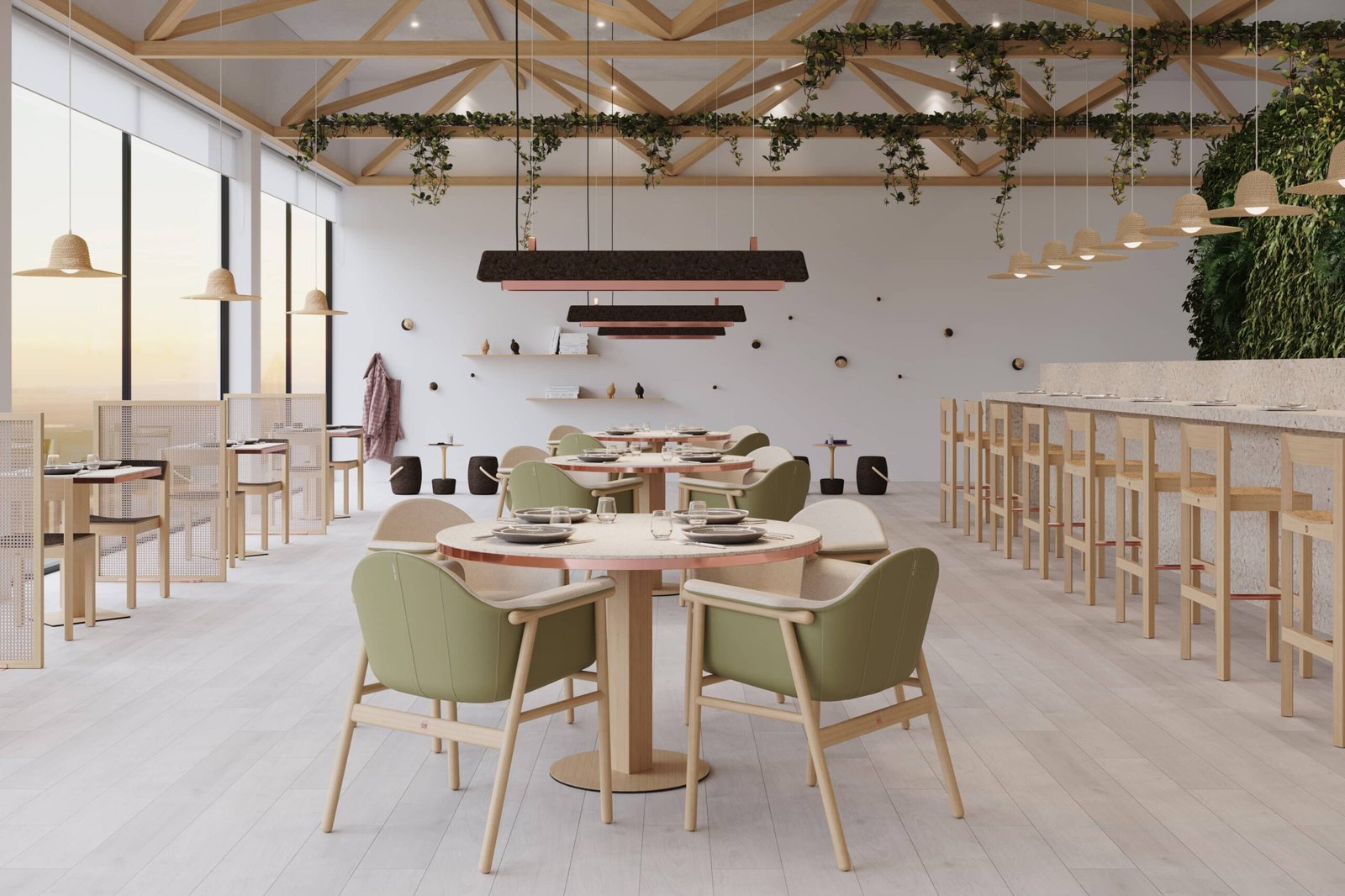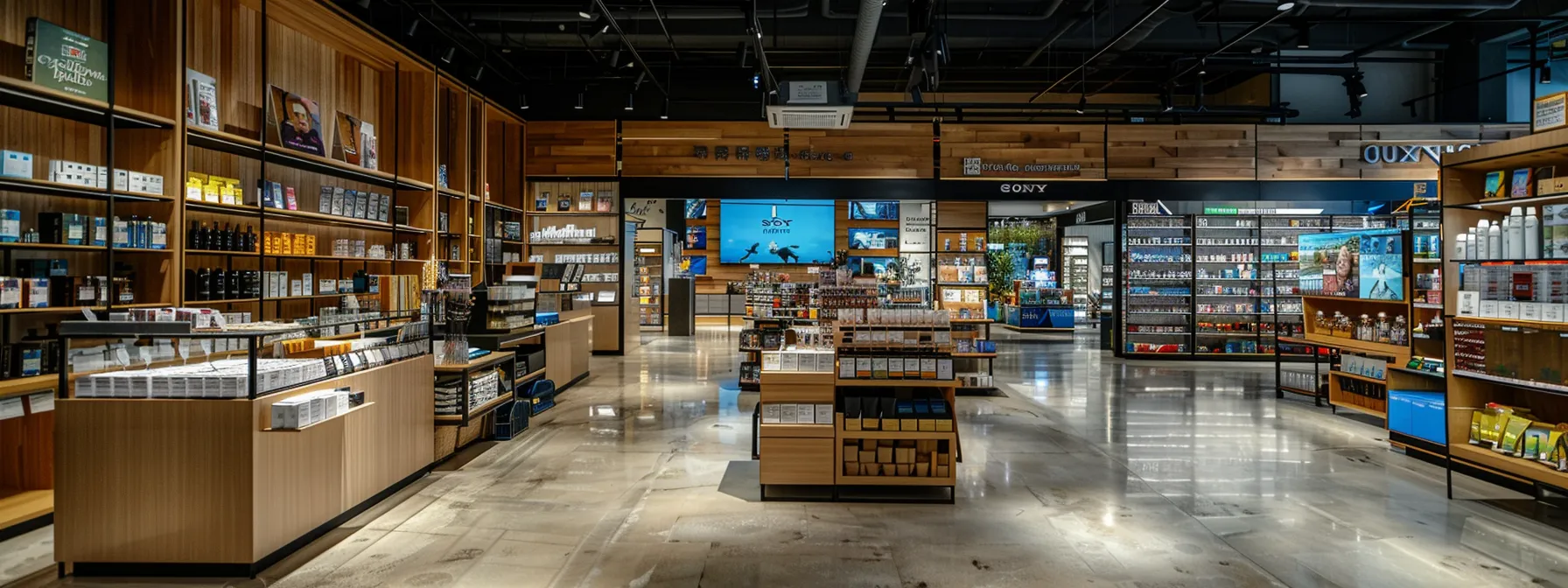In a time when environmental awareness is becoming more and more important, there has been a discernible shift in the furniture industry towards sustainable practices, including the manufacture of restaurant chairs. This change is in line with consumers’ growing desire for ecologically friendly products. Here are some examples of how sustainability is being incorporated into the production of restaurant chairs.
ECOLOGICAL MATERIAL
The choice of materials is crucial when making environmentally friendly restaurant chairs. Currently, several sustainable options are available, including:
Recycled Metal and Recovered Wood: By using recycled metal and recovered wood, less virgin material is used, reducing the impact of deforestation and mining.
Bamboo: Known for its rapid growth and renewability, bamboo is a popular sustainable material. It is resilient and long-lasting, requiring fewer pesticides and fertilisers.
Recycled Plastics: Thanks to technological breakthroughs in recycling, high-quality plastic chairs can now be made from post-consumer waste.
ECO-FRIENDLY END
Traditional adhesives and furniture coatings have the potential to release volatile organic compounds (VOCs) into the atmosphere, putting the environment and human health at risk. Sustainable practices include:
Compared to solvent-based coatings, water-based finishes release far fewer volatile organic compounds (VOCs).
Natural oils and waxes provide a non-toxic alternative to wood chair treatments.
Adhesives with low volatile organic compounds: Restaurants can ensure improved interior air quality by utilising adhesives with less volatile organic compounds (VOCs).
ENERGY EFFICIENT
Making chairs can be a very energy-intensive process. To reduce this, manufacturers are using energy-saving methods such as these:
Utilising solar, wind, or other renewable energy sources to power factories is known as renewable energy.
Investing in equipment that produces less waste and consumes less energy is referred to as efficient equipment.
For instance, you are optimising production processes by using lean manufacturing techniques and simplifying operations to use less energy.
REDUCTION OF WASTE
Waste reduction is a key component of sustainable production. Among the tactics are:
Reusing leftover materials from one product to create another is known as upcycling offcuts.
Programs for Recycling: Establishing comprehensive recycling programs in production plants.
Design for Disassembly: Chairs that are easy to disassemble guarantee that, after their useful life is finished, their components can be recycled or put to other uses.
ECOLOGICAL SUPPLY CHAIN
Ensuring adherence to sustainability standards throughout the supply chain is crucial. This includes Ethical sourcing, which is the practice of collaborating with suppliers who adhere to sustainable forestry and ethical labour norms.
Local Sourcing: Purchasing goods locally reduces the carbon footprint and transportation emissions.
Transparency: Maintaining candour and openness with customers on the sources of materials and processing techniques.
PRODUCT LIFESPAN EXTENDED
Sustainable chairs require fewer replacements due to their longer-lasting designs. The following are some of the practices:
Using high-quality materials that can withstand the rigours of a restaurant setting is known as “durable materials.”
Repairability: Designing chairs that, in the case of damage, may be easily repaired rather than thrown away.
Creating classic pieces ensures they are both stylish and useful for many years, avoiding the need for trendy replacements.
REQUIREMENTS AND ACCREDITATION
Obtaining certifications and following set environmental standards can help maintain sustainable operations. Among the relevant certifications are: FSC accreditation: The Forest Stewardship Council (FSC) accreditation ensures that wood products come from forests that are sustainably managed.
The GREENGUARD Certification ensures that products meet tight chemical emissions regulations, which helps to enhance indoor air quality.
ISO 14001 describes the requirements for an effective environmental management system (EMS).
FINAL RESULTS
The production of restaurant chairs is shifting towards sustainability, which is indicative of a larger dedication to environmental responsibility. By focusing on eco-friendly procedures, sustainable materials, energy efficiency, waste reduction, and ethical supply chains, manufacturers are creating the foundation for a brighter future. Restaurant operators who select sustainable furnishings not only contribute to environmental preservation but also attract the growing number of environmentally conscious patrons. As the industry continues to innovate, sustainable furniture production methods will become the norm rather than the exception.











